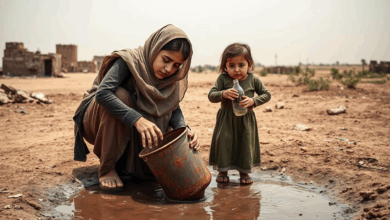Discarded clothes from UK brands dumped in protected Ghana wetlands
News Mania Desk / Piyal Chatterjee / 18th June 2025

Clothes discarded by UK consumers and shipped to Ghana are ending up in large rubbish dumps within protected wetlands, compromising local ecosystems. An investigation by Unearthed and Greenpeace Africa discovered garments from various brands, including Next, M&S, Zara, H&M, and Primark, polluting waterways and public spaces in Accra. Local residents report significant issues with fishing nets and beaches being clogged with synthetic fast-fashion items, impacting their livelihoods.
As Ghana’s used clothing trade thrives, Kantamanto market receives over 1,000 tonnes of clothes weekly, yet traders lament that the quality has deteriorated over time, with many garments arriving already damaged.
Despite brands acknowledging problems with textile waste, responses vary. M&S, George, and Primark tout take-back schemes while H&M, Zara, and George express support for extended producer responsibility (EPR) to address end-of-life impacts. However, Accra faces a waste crisis, with only 30 tonnes of the 100 tonnes of daily garment waste processed adequately. The remaining waste ends up in sensitive ecological areas, risking environmental degradation.
Ghana’s Densu delta, crucial for endangered species, is under threat from improper waste disposal, with multiple recently opened dump sites found near vital habitats. Reports reveal insufficient landfill infrastructure to manage the growing issue, raising concerns over pollution’s effects on healthy ecosystems. Residents have noticed a decline in water quality and increased mosquito populations, linking these changes to the rising waste levels.
In response, multiple retailers assert they do not export excess clothing to countries like Ghana. They promote local recycling initiatives and express willingness to explore EPR legislation. Nonetheless, the challenge of textile waste remains substantial, requiring collective industry action to mitigate its ecological impact effectively. The situation highlights the urgent need for improved waste management and accountability within the fast-fashion sector to prevent further environmental damage in vulnerable regions like Ghana.






